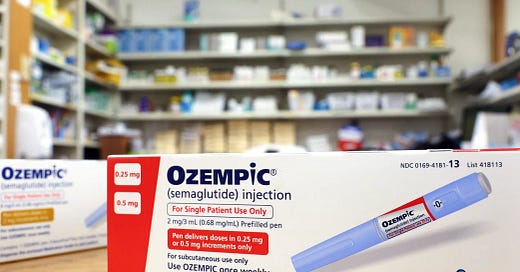If you are like me, a woman over 40 who uses social media, there’s no way you’ve been able to avoid headlines, articles, tweets, podcasts, broadcasts, and conversations about Ozempic and all of its sister medications. So you probably already know this, but just in case: Ozempic is a once-weekly injection used to treat Type 2 diabetes. It can also lower …
© 2025 Gabrielle Stanley Blair
Substack is the home for great culture



